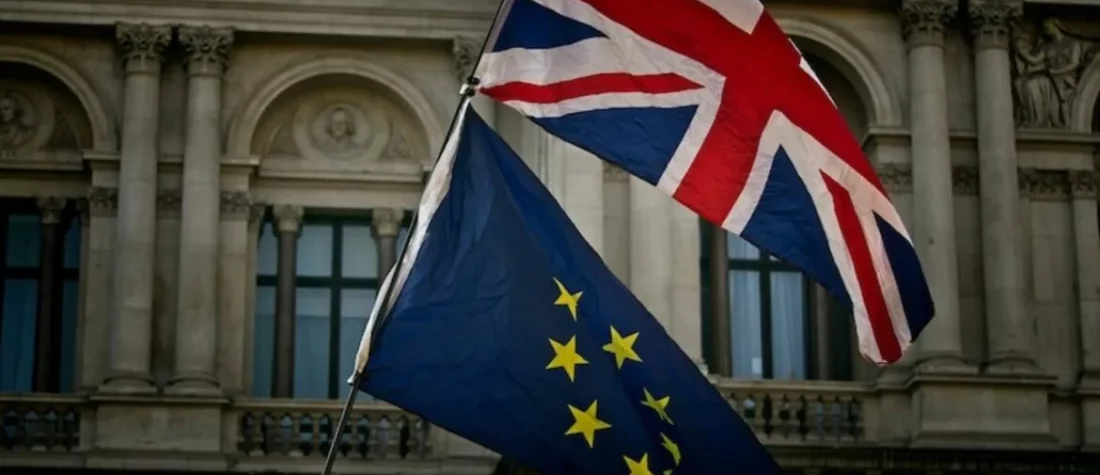Growth – it appears to be the watchword of the new government of Prime Minister Keir Starmer. A lot of focus has been on how political stability – lacking in recent years, to say the least – could bring back investment. Perhaps reforms in planning or housing could unlock some untapped innovation or capital. Perhaps.
A more likely scenario, given the calamitous start, is that the new government will find ways to undermine the very growth it seeks. Raising taxes – which seems to be the plan – is an obvious start. Restricting the UK’s flexible labour market, a key demand of Labour’s union paymasters, will have a similar negative effect.
But Labour are also set to do damage through domestic regulation. Donald Trump may talk tough on tariffs, but most advanced countries have long ago switched to non-tariff barriers in the form of regulations, to act as protectionist barriers. Those barriers may be demanded by domestic lobbies – but they harm growth, restrict investment and undermine trade.
The EU is discovering this now, and it offers a cautionary tale for the UK. The EU introduced, with much self-congratulation, the EU Deforestation Regulation (EUDR) in 2023. Pitched as a way to ‘clean up’ supply chains by introducing traceability (who could argue against that?) the Regulation instead is now considered by many governments, NGOs, businesses and experts to be unworkable. So much so, that the EU Commission has been forced to delay its implementation by 12 months in the face of protests from European industry, foreign governments, and NGOs. Foreign producers who sought to comply are now eating up heavy losses.
It has been a disaster. Fortunately for British industry, the UK has not (yet) copied this approach.
The UK’s approach to removing deforestation from supply chains takes a different, and much more sensible approach. Known as ‘Forest Risk Commodities’ (FRC) rules, they were determined under the Environment Act passed back in 2021.
The legislation imposed a ‘legality standard’ for due diligence of commodities such as soy, palm oil and cocoa. This ensures that illegal deforestation will be completely removed from UK supply chains. However – unlike the EU’s approach that adds red tape and reduces growth – the UK Due Diligence rules recognise the certification efforts of partner countries. This means a positive, cooperative approach to ensuring sustainable commodities. Countries like Malaysia, a CPTPP partner and Commonwealth member, which has a mandatory government standard for producing sustainable palm oil, and which is committed by law to zero deforestation, therefore does not face additional burdens.
This matters for prices at the supermarket, but also because the same countries who are partners in the Due Diligence effort are also often key investors in the U.K. Malaysian investors own Battersea Power Station, for example. Indian investors own a lot of UK assets, including steelmaking and car manufacturing such as Jaguar Land Rover. If the Labour government changes the rules and pushes for EU-style red tape on commodity imports – we weaken our hand in trade talks and, as Rachel Reeves is discovering, reduce foreign direct investment into the UK.
Many have trouble believing that recognition of foreign standards is not a “weakening” of our own. They assume that the more complex and centralised the rules, the more effective they are. But it’s a pure control fallacy – they are confusing burdensome obstructionism with effectiveness. The UK’s Trade and Agriculture Commission (TAC), an expert body under the Department for Business and Trade thoroughly analysed the FRC legislation and came to the same conclusion. They highlighted the benefits of partner countries’ standards in an official report, funding that “Malaysia operates a mandatory deforestation-free standard [MSPO]” and so “there is a low risk that Malaysian palm oil exported to the UK would come from land that was deforested”.
The House of Commons’ Environmental Audit Committee (EAC), which examined issues related to global deforestation, also found that we have an “opportunity to learn” from partner countries, rather than talk down to them. They, after all, have been developing best practice on their own for decades. In Brussels, that grandstanding has eroded relations between the EU and developing nations. The red tape of the EU Deforestation Regulation will push up prices for European consumers and means increased costs for businesses. All of these outcomes are negative for economic growth. The quiet truth, of course, is that this is intentional. Protectionism for incumbent EU producers of substitutes. The consumer and the climate can pay for it.
The next Conservative leader must be wise to the ways that regulations such as these, replicated a thousand times across the economy, undermine investment and make life more expensive for the poorest for no real environmental gain. A new shadow cabinet must make the Tories again a friend to business – championing its causes against excessive regulation. It’s important for the campaign, of course, but also to make sure the party is ready with the ideas to govern and deliver on growth.
The lesson we should be learning from the EU experience is how the decentralised but effective legality standards and mutual recognition can be used in other regulatory areas. As we published this month at the Institute for Free Trade, and was echoed at the Growth Commission this week, mutual recognition can form the backbone a “green deregulation” that raises the rate of return on green investments and conservation rather than wrapping it in red tape. If Starmer really wants growth, the UK must stay its course and use its market as a ‘carrot’ to crowd in investment from green producers. If he misses this opportunity – the next leader must be wise enough to seize upon it.
Robert Armstrong is a writer and Director of the Institute for Free Trade


